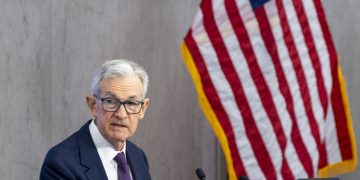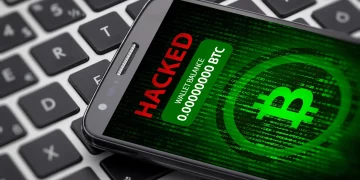Quantum computing stands on the brink of transforming global financial systems, promising unparalleled processing power capable of disrupting everything from encryption protocols to asset valuation models. Emerging market currencies, long vulnerable to volatility driven by external shocks and infrastructural weaknesses, could face both unprecedented opportunities and challenges as quantum technologies mature. By examining how key emerging economies such as India and Brazil are deploying quantum-related innovations — India’s quantum encryption standards and Brazil’s mineral rights blockchain — we can begin to grasp the profound implications for forex stability and currency resilience in the coming decade.
India’s Quantum Encryption Standards
India’s proactive investment in quantum computing research has rapidly positioned it as a global leader in quantum-safe cryptographic development. Recognizing that traditional encryption methods could become obsolete once large-scale quantum computers arrive, Indian regulators and tech consortia have collaborated to establish stringent quantum encryption standards aimed at securing government communications, financial transactions, and digital identities. This initiative includes the development of quantum key distribution (QKD) networks to facilitate ultra-secure data exchanges impervious to hacking—even by quantum adversaries.
For emerging market currencies, India’s push towards quantum encryption is crucial. The rupee’s internationalization ambitions hinge on robust digital infrastructure capable of fostering cross-border trust. By integrating quantum encryption standards into the Reserve Bank of India’s payment systems and fintech platforms, India is creating a fortified ecosystem that can resist cyberattacks, fraud, and manipulation that typically undermine currency confidence in emerging markets.
Moreover, India’s leadership in this area is encouraging private banks and fintech startups to adopt quantum-resistant technologies, thereby expanding the security perimeter beyond state institutions. This creates a broader, more resilient financial infrastructure supporting the rupee’s stability and international acceptance. The ripple effects include higher foreign investment inflows, reduced currency hedging costs, and a strengthened monetary policy transmission mechanism—elements that collectively stabilize the rupee against external shocks.
Brazil’s Mineral Rights Blockchain
Brazil’s resource-rich economy has uniquely leveraged quantum computing breakthroughs by applying blockchain technologies to the management of mineral rights and extraction permits. The Brazilian government has piloted a quantum-enhanced blockchain ledger system that uses quantum-resistant algorithms to create immutable, transparent, and tamper-proof records of mineral concessions across the Amazon and other resource-rich regions.
This innovation not only streamlines administrative processes and reduces corruption but also significantly impacts Brazil’s currency, the real. Mineral exports constitute a substantial share of Brazil’s GDP and foreign exchange earnings. By assuring global buyers and investors of the provenance and legal standing of mineral assets through a quantum-secure blockchain, Brazil enhances market confidence in its commodity exports, thus providing stronger support for the real.
Additionally, the quantum blockchain system facilitates real-time verification of trade contracts and commodity flows, enabling more precise forecasting of currency inflows linked to resource exports. This improved transparency can reduce speculative volatility in the real, making it less susceptible to sudden swings driven by misinformation or opaque dealings. The broader application of such blockchain solutions could also extend to agricultural exports, energy contracts, and other key sectors influencing Brazil’s forex dynamics.
Forex Stability Implications
The adoption of quantum computing-enabled security and transparency technologies in emerging markets like India and Brazil signals a fundamental shift in the factors underpinning forex stability. Traditionally, emerging market currencies have been vulnerable to external pressures such as capital flight, geopolitical tensions, and technological infrastructure deficits. Quantum technologies, however, offer new mechanisms to mitigate these risks.

Firstly, quantum encryption fortifies digital financial ecosystems against hacking and cybercrime, two pervasive sources of currency volatility. With rising digitization, any breach in payment or settlement systems can spark sudden currency depreciation due to loss of investor confidence. Quantum-secured networks thus serve as a deterrent, preserving currency value by maintaining trust in transactional integrity.
Secondly, the transparency enabled by quantum-enhanced blockchain solutions improves market information symmetry. Investors and policymakers gain access to reliable, real-time data on commodity flows, trade agreements, and fiscal transactions—critical variables for assessing currency strength. Enhanced transparency discourages speculative attacks based on misinformation and provides a stable informational environment for forex markets.
Thirdly, quantum computing’s capacity to model complex economic scenarios with unprecedented accuracy enables central banks and policymakers in emerging markets to design more effective interventions. By integrating quantum-accelerated economic forecasting with macroprudential policies, authorities can anticipate currency shocks earlier and implement targeted measures to dampen volatility.
Challenges and Risks
Despite these promising developments, the integration of quantum computing into emerging market financial infrastructures is not without challenges. The “quantum arms race” may exacerbate technological divides, leaving countries unable to afford or implement these solutions further exposed to cyber and market risks. Furthermore, the transition to quantum-safe encryption and blockchain protocols requires substantial upgrades to existing systems, demanding technical expertise and capital investment that many emerging markets may struggle to secure.
There is also the risk that quantum computing could disrupt current cryptographic standards before new protections are fully operational, creating temporary vulnerabilities. Cybercriminals equipped with quantum technologies may exploit these gaps to destabilize currencies through fraud or market manipulation.
Lastly, rapid technological adoption must be balanced with regulatory frameworks that protect data privacy and prevent misuse of quantum-enhanced systems, ensuring the new tools foster stable and equitable market environments rather than concentrate risks or power.
Conclusion
Quantum computing breakthroughs hold transformative potential for reshaping the landscape of emerging market currencies. India’s quantum encryption standards exemplify how fortified digital security can build trust and stability around a currency’s ecosystem, while Brazil’s quantum-enhanced mineral rights blockchain illustrates how transparency and supply chain integrity directly bolster forex strength. Together, these innovations signal a new frontier where technological resilience, resource management, and macroeconomic stability converge.
Emerging markets that strategically integrate quantum technologies will be better positioned to mitigate the volatility that has long plagued their currencies. However, success depends on overcoming challenges related to cost, expertise, and regulation. As quantum computing advances from theoretical promise to practical application, its impact on forex markets may well redefine how emerging economies safeguard and grow their financial sovereignty in an increasingly interconnected and high-tech world.












































